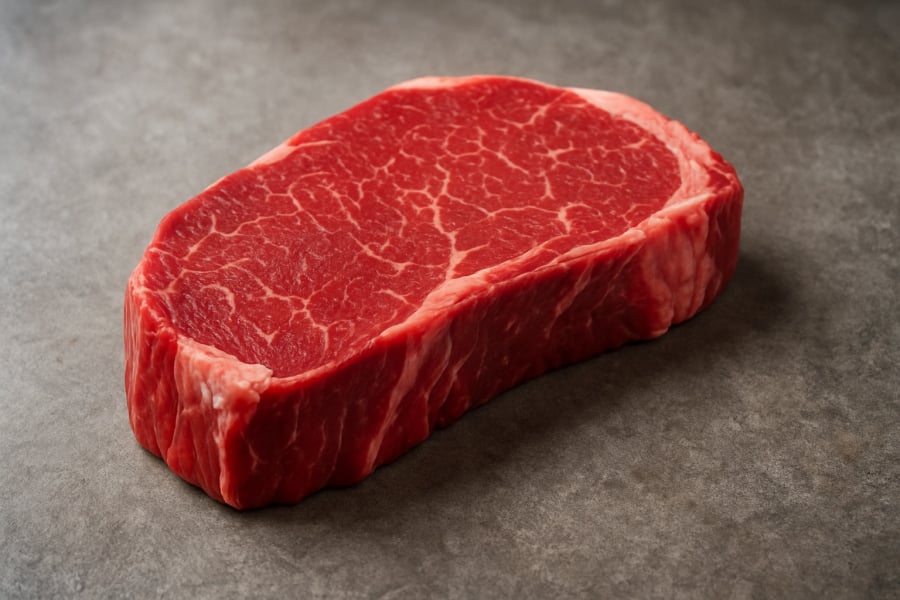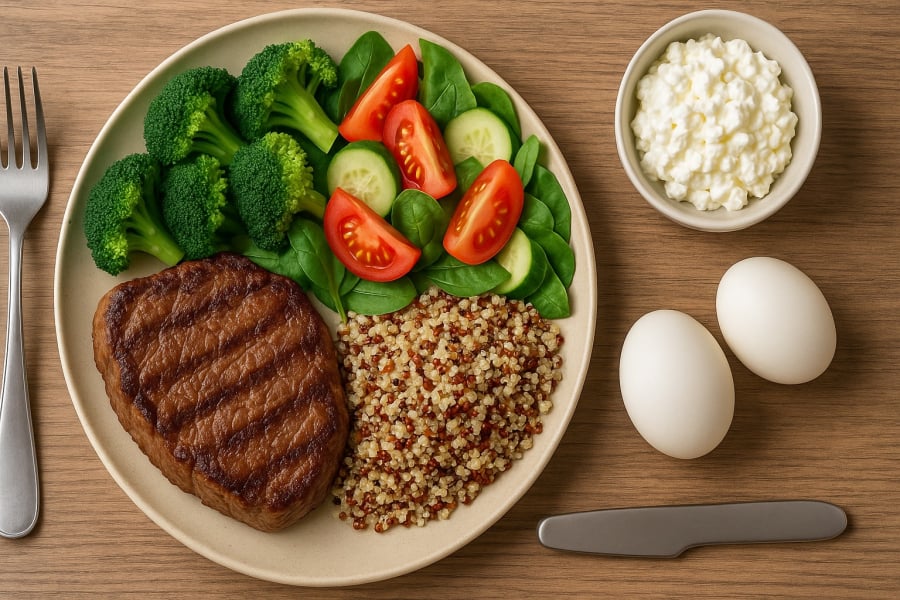Red Meat: A Nutritional Powerhouse
Red meat encompasses a variety of meats, including beef, pork, lamb, and other types. It is an excellent source of protein, which is crucial for muscle building and maintenance. Additionally, red meat contains a plethora of essential nutrients such as:
- Iron: Vital for red blood cell production and preventing anemia.
- Vitamin B12: Necessary for blood cell production and nerve function.
- Zinc: Supports immune system health and tissue growth.
According to nutritionist Nguyen Thi Mai from the National Institute of Nutrition, “Red meat is a source of high-quality protein that is essential for the body, especially for the elderly and athletes.”

Red Meat and Cardiovascular Risks
However, not everyone is aware that excessive consumption of red meat, particularly processed varieties, can be detrimental to cardiovascular health. A 2019 study by Harvard University found that regularly eating processed red meat increases the risk of cardiovascular disease by up to 18%.
The main mechanisms of harm include:
- Saturated fat and cholesterol in red meat can elevate bad cholesterol (LDL) levels, leading to atherosclerosis.
- HCAs and PAHs formed during high-temperature cooking can damage DNA and increase cancer risk.
“To minimize the risk, it is advisable to limit the consumption of sausages, bacon, and other processed meats,” advises Dr. Tran Minh Tri, a cardiologist at Cho Ray Hospital.
Recommended Daily Intake of Red Meat
The American Heart Association recommends limiting red meat consumption to no more than 500 grams of lean meat per week. For adults, a suitable serving of red meat typically ranges from 70 to 100 grams per meal.
Ms. Pham Thi Dieu Anh, a Ho Chi Minh City-based nutritionist, suggests, “Opt for lean beef or pork loin, and avoid processed meats. A sample menu could include 100 grams of grilled beef with a vegetable salad or 70 grams of pan-fried pork with brown rice.”

Selecting and Preparing Red Meat Safely
To reap the benefits of red meat while maintaining cardiovascular health, consider the following:
- Selection: Choose lean, fresh meat from a reliable source.
- Preparation: Opt for healthier cooking methods such as steaming, boiling, or pan-frying with minimal oil. Enhance flavor with natural spices like garlic, ginger, and black pepper.
- Avoid: Mayonnaise and other processed sauces, as suggested by nutritionist Bui Thi Thu Huong.
Other Heart-Healthy Foods
In addition to red meat, ensure you incorporate the following nutrient-rich foods into your diet: Green vegetables like broccoli and kale are excellent for cardiovascular health. Fruits such as berries, oranges, and grapefruit are also great choices. Whole grains such as oatmeal and brown rice provide essential fiber. Soybeans and black beans offer a healthy plant-based protein source. Fatty fish like salmon and tuna are rich in heart-protective omega-3 fatty acids.
Healthy Diet and Lifestyle
A healthy heart requires a holistic approach. Limit processed foods and sweets to avoid cholesterol buildup. Stay hydrated by drinking 2-3 liters of water daily. Engage in regular exercise, aiming for at least 30 minutes of physical activity each day. Quit smoking and schedule regular health check-ups to detect potential issues early on.
Conclusion
Red meat is a valuable source of nutrients, but it should be consumed in moderation. “Maintaining a healthy diet and a positive lifestyle are the most important factors,” emphasizes Ms. Nguyen Thi Lan Anh, a Hanoi-based nutritionist.
Start taking care of your heart today! Share your experiences and insights in the comments below.
Unveiling the Height-Boosting Secrets of Mothers with the Tallest Kids in Class
“A mother’s journey to help her child achieve their ideal height begins with a holistic approach. It’s not just about nutrition; it’s about creating a lifestyle that promotes growth. From a balanced diet and regular exercise to adequate sleep and a positive mindset, every aspect of a child’s life needs to be considered. By paying attention to these key areas and making them a priority, mothers can give their children the best chance to reach their full potential, both in height and overall well-being.”





































